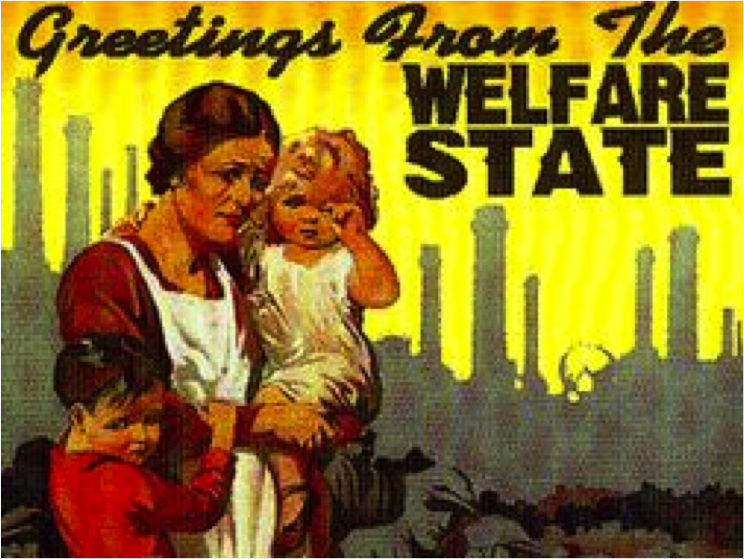India is supposed to have a welfare state according to Article 39 of the constitution. Come elections and all the political parties try to vie for the Indian voter by giving her a plethora of freebies, all in the name of welfare. The ‘welfare mindset’ of the Indian state and policies emanating from that is the only constant in Indian politics that doesn’t change and finds approval throughout the political spectrum.
However, Shri B. S. Sanyal, in this article published in the August 1957 edition of Indian Libertarian magazine, explains how a welfare state hinders the growth of prosperity in a society. According to him, it involves non-productive bureaucrats extracting resources from the productive classes and spending it inefficiently, mostly on consumption expenditure rather than investment.
Welfarists fail to see that all intervention has a tremendous nuisance value. At least to all those who have developed some sense of freedom. Most have not. Hence the welfarists thrive. It is not necessary for one to be a capitalist, an exploiter or a criminally selfish man to abhor state interventionism. It is quite easy to see that if power, both economic and political, be concentrated in the hands of the rulers, we lose not only freedom but also prosperity. One cannot show a surer way to lose both.
Freedom-loving men wish to plan their own course of life. In the welfare state, this prerogative rests only in the planners. ‘Everyone else is a planee,’ as Reginald Jcbb puts it. Welfarism thus emasculates the ruled and degrades the character of the rulers. Confiscatory policies destroy freedom, slow down further accumulation of capital, and start the process of capital consumption. These arrest progress towards prosperity and bring about a disposition to progressive poverty.
THE FAILURE OF BRITISH EXPERIMENT IN SOCIALISM
The welfarist misses or deliberately ignores the permanent elements in Free Economy which make up the ground of all economics. He refuses to see that the British experiment in socialism is sustained by American capitalism and the Communist experiment by state capitalism. He also does not recognize that between the two methods of capital formation, the welfarist political and the ordinary economic, the latter has greater efficiency.
In the unhampered market economy saving, capital accumulation and investment coincide. The saver forgoes a part of his present satisfaction for some future benefit. As he saves through a savings bank or an insurance policy, the bank or the insurance company invests the equivalent. The saver may later consume the savings; yet no disinvestment or capital consumption results. The withdrawals do not affect the investments of the banks and insurance companies: the investments increase steadily. The ordinary saver’s ordinary selfish conduct thus leads to social welfare.
STATE SQUANDERING
The private citizens may go on saving; but the government squanders the savings by spending them for current expenditure and malinvestment. The welfarists fail to understand that even the mere maintenance of capital requires skilful handling of the questions of investment and successful speculation and presupposes economic calculation and hence the operation of the market economy. In any case they prescribe spending as a panacea while denouncing over-saving and underconsumption.
Furthermore, on the one hand, they say that both maintenance of capital and further accumulation of capital will be the preserve of the government and no longer left to the selfish individuals; on the other hand, they falsely assume that the good of the future generation will tum one’s selfishness to greater saving. And these, when under ordinary market economy conditions the selfishness drives man to save and invest in such a way as to fill best the most urgent needs of the consumers.
The original document can be accessed here.
IndianLiberals.in is an online library of all Indian liberal writings, lectures and other materials in English and other Indian regional languages. The material that has been collected so far contains liberal commentary dating from the early 19th century till the present. The portal helps preserve an often unknown but very rich Indian liberal tradition and explain the relevance of the writings in today’s context.
Read more: Food Prices and Libertarian Solution
Post Disclaimer
The opinions expressed in this essay are those of the authors. They do not purport to reflect the opinions or views of CCS.






